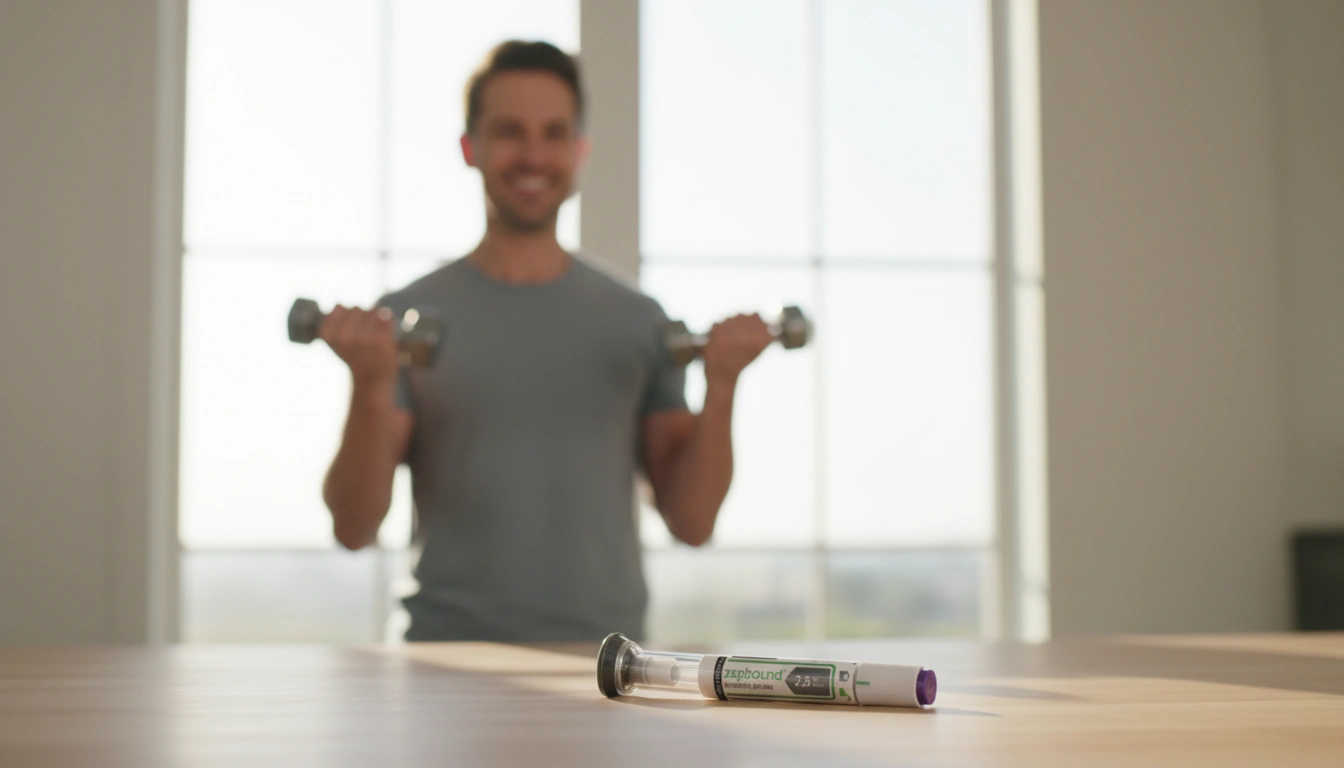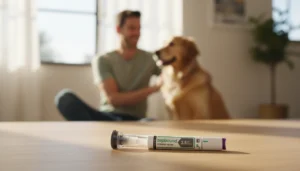How to Stop Diarrhea on Zepbound: Practical Tips and Insights

Introduction
Diarrhea is an uncomfortable and often distressing side effect that can occur when starting any new medication, including Zepbound. This weight loss medication, which utilizes tirzepatide as its active ingredient, has emerged as a promising solution for individuals struggling with obesity and overweight conditions. While it can be an effective tool in achieving weight loss goals, the gastrointestinal side effects, particularly diarrhea, can be a significant hurdle for many users.
According to recent studies, gastrointestinal symptoms, including diarrhea, are among the most common side effects reported by individuals using Zepbound. These symptoms can arise during the initial stages of treatment or when doses are increased, as the body adjusts to the medication. Understanding how to manage these symptoms effectively is crucial for anyone embarking on a weight loss journey with Zepbound.
In this blog post, we will explore practical strategies for managing diarrhea associated with Zepbound, delve into its mechanism of action, and discuss the importance of personalized care in our weight loss programs at TrimRx. By the end of this article, you will gain insights into dietary adjustments, lifestyle changes, and other coping strategies to help mitigate this side effect.
What You Will Learn
- The connection between Zepbound and gastrointestinal side effects, particularly diarrhea.
- Effective strategies to manage and reduce diarrhea.
- The importance of personalized weight loss programs and ongoing support in achieving sustainable results.
As we navigate through this conversation, we invite you to reflect on your personal health goals and consider how the insights shared here might apply to your journey.
Understanding Zepbound and Its Mechanism of Action
Zepbound (tirzepatide) is a GLP-1 and GIP receptor agonist that works by mimicking the actions of incretin hormones in the body. These hormones play a key role in regulating appetite and insulin secretion, helping to reduce food intake and promote weight loss. By slowing gastric emptying, Zepbound can lead to a prolonged feeling of fullness, making it easier to adhere to a lower-calorie diet.
However, as the body adjusts to the changes in digestion and metabolism, some users may experience side effects, particularly gastrointestinal disturbances like diarrhea. This side effect can be particularly pronounced during the initial stages of treatment or after a dosage increase, when the body is still adapting to the medication.
Why Does Diarrhea Occur?
Diarrhea can occur for several reasons when starting Zepbound:
- Gastrointestinal Adaptation: As your body adjusts to the medication, changes in digestion can lead to temporary disturbances, including diarrhea.
- Dietary Changes: Many individuals on Zepbound may adopt a healthier diet, which can include increased fiber intake. While beneficial, sudden dietary changes can upset the digestive system.
- Medication Dosage: The introduction of Zepbound begins with a low dosage, which is gradually increased. During these adjustments, the digestive system may react by producing more frequent bowel movements.
Understanding these factors can empower you to take proactive steps in managing any gastrointestinal side effects, including diarrhea.
Effective Strategies for Managing Diarrhea on Zepbound
While experiencing diarrhea can be distressing, there are several strategies we can adopt to help mitigate this side effect effectively.
1. Dietary Adjustments
One of the most effective ways to reduce diarrhea is through careful dietary management. Here are some dietary tips to consider:
- Bland Foods: Incorporate bland foods into your diet, such as bananas, rice, applesauce, and toast (often referred to as the BRAT diet). These foods are gentle on the stomach and can help firm up stools.
- Lower Fat Intake: High-fat foods can exacerbate digestive issues. Focus on lean proteins, fruits, and vegetables while limiting fried and greasy options.
- Stay Hydrated: Diarrhea can lead to dehydration, so it’s essential to drink plenty of fluids. Opt for water, clear broths, or oral rehydration solutions. Avoid caffeinated or sugary beverages, which can worsen dehydration.
- Monitor Fiber Intake: If you’ve increased your fiber consumption, try to gradually adjust your intake. Too much fiber too quickly can lead to digestive upset.
2. Gradual Dosage Increases
It’s essential to follow your healthcare provider’s recommendations when it comes to increases in medication dosage. Starting with a low dose and gradually increasing it allows your body time to adapt. If diarrhea becomes severe or persistent, do not hesitate to consult with your healthcare provider, as they may recommend adjusting your dosage or exploring alternative options.
3. Timing and Meal Frequency
Instead of three large meals, consider eating smaller, more frequent meals throughout the day. This can help ease the digestive load and minimize the chances of experiencing diarrhea.
4. Record Keeping
Keeping a food and symptom diary can be beneficial. By tracking what you eat and any gastrointestinal symptoms you experience, you can identify potential triggers and adjust your diet accordingly. This practice can also provide valuable information to discuss with your healthcare provider.
5. Consultation with Healthcare Providers
At TrimRx, we prioritize personalized care. If you find that diarrhea persists despite making dietary adjustments, it’s crucial to communicate this with your healthcare provider. They can help identify if the issue is related to the medication or other underlying factors that need to be addressed.
The Role of Personalized Care in Weight Loss
At TrimRx, we believe that every individual’s weight loss journey is unique. Our personalized weight loss programs are designed to cater to the specific needs and goals of each participant. By merging cutting-edge telehealth innovations with medically supervised care, we create a supportive environment for individuals to thrive.
Comprehensive Support System
Our comprehensive service includes:
- Doctor Consultations: Regular consultations allow us to monitor your progress and adjust your treatment plan as needed.
- Medication Management: We provide medications through FDA-registered and inspected pharmacies, ensuring safety and efficacy.
- Unlimited Support: Our team is available to assist you at any time, providing guidance and answering questions related to your treatment.
Take Our Free Assessment Quiz
To embark on your personalized weight loss journey, we encourage you to take our free assessment quiz. This quiz helps us determine your eligibility for our prescription weight loss medications, including Zepbound. Take the assessment quiz here.
Quick-Access Supplements
In addition to our personalized programs, we offer quick-access supplements that can support your weight loss journey. Our GLP-1 Daily Support and Weight Loss Boost supplements are designed to enhance your overall wellness. You can explore these options and make a purchase to complement your Zepbound treatment:
Conclusion
Navigating the journey of weight loss with medications like Zepbound can be challenging, especially when faced with side effects such as diarrhea. However, by implementing practical strategies like dietary adjustments, gradual dosage increases, and personalized care, we can effectively manage these symptoms and enhance the overall experience of using Zepbound.
We encourage you to reflect on your personal journey and consider how these insights can empower you to take control of your health. Remember, our team at TrimRx is here to support you every step of the way, ensuring that you have the resources and guidance needed for a successful weight loss journey.
FAQ
What should I do if I experience severe diarrhea while taking Zepbound?
If you experience severe diarrhea, it’s important to consult your healthcare provider. They can help assess the severity of your symptoms and recommend appropriate adjustments to your treatment plan.
Can dietary changes help manage diarrhea caused by Zepbound?
Yes, making dietary adjustments, such as incorporating bland foods and reducing fat intake, can help alleviate diarrhea.
How long do Zepbound side effects typically last?
Most side effects, including diarrhea, may last from a few days to a couple of weeks as your body adjusts to the medication. If symptoms persist longer than expected, consult your healthcare provider.
Is it safe to continue taking Zepbound if I experience diarrhea?
In many cases, diarrhea is a temporary side effect that resolves as your body adapts. However, if it becomes severe or bothersome, you should discuss this with your healthcare provider before making any changes to your medication regimen.
What are the signs of dehydration I should watch for?
Signs of dehydration include excessive thirst, dark urine, fatigue, dizziness, or lightheadedness. If you experience these symptoms, increase your fluid intake and seek medical advice if they persist.

Transforming Lives, One Step at a Time
Keep reading
Navigating Your Path: How Many Doses Are In Zepbound and What It Means for Your Health Journey
Curious how many doses are in Zepbound? Discover its weekly dosing schedule, available strengths, and titration process for effective weight loss. Learn more!
Navigating Your Zepbound Journey: Understanding Dosing and Expert Guidance
Wondering how to split doses of Zepbound? Learn why it’s unsafe & not recommended. Get expert guidance on Zepbound dosing for safe, effective weight loss with TrimRx. Click to learn more!
Understanding Zepbound Dosing: What is the Lowest Dose Available for Your Weight Loss Journey?
Curious what is the lowest dose of Zepbound available? Learn about Zepbound’s 2.5mg starting dose, titration, and safe use for weight loss. Get expert guidance!



